Getting Your Gut Health in Check
Herbs are a useful part of a treatment plan for irritable bowel syndrome (IBS). They promote comfort, decrease mucus formation and regulate bowel function.
Let’s take a look at nine of the most useful herbs that relieve IBS symptoms. They may be used independently or in combination with each other. Herbs may be employed instead of or in conjunction with conventional remedies.
1. Slippery Elm (Ulmus Rubra)
Slippery elm provides rapid relief of discomfort and helps to regulate bowel function. It provides a protective barrier throughout the lining of the gastrointestinal tract.
Take the herb in capsule form or make tea by pouring one cup of boiling water over 1-3 teaspoons of powdered slippery elm. Let the herb steep for 10 minutes. Do not strain the contents. The tea will be thick. Drink the tea three to four times daily.
In addition to its soothing, protective qualities, slippery elm is nutritious. Purchase products that contain cultivated organic slippery elm only. Slippery elm is safe for all ages, but do not take slippery elm at the same time as medications as it may interfere with their ability to be absorbed.
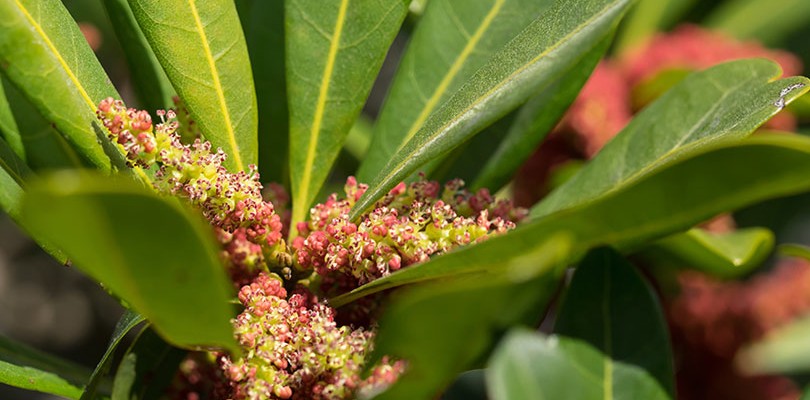
Photo Credit: ouchi_iro / istockphoto.com
2. Bayberry (Myrica Cerifera)
Bayberry is an astringent that helps to eliminate excess mucus formation and soothe the intestinal tract. It is useful if diarrhea is present. Bayberry is safe and does not interact with medications. The bark of the plant is used for medicinal purposes.
Make an herbal decoction by placing one teaspoon of dried bark in a pot. Cover the herb with one cup of water. Place a lid on the pot and bring the mixture to a simmer. Simmer for 20 minutes, strain out the herb, and compost or discard it. Drink the remaining tea. The recommended dose is one cup of tea three times daily.
You may prefer to use a tincture. If using a tincture take 1-2mls of a 1:5 concentration three times daily.
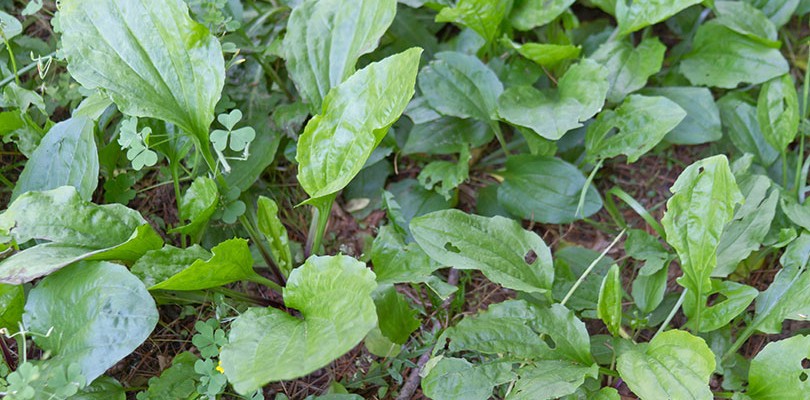
Photo Credit: AwakenedEye / istockphoto.com
3. Plantain (Plantago Major)
Plantain is a gentle herb that promotes the healing of intestinal tissues. It is soothing and cooling. The herb helps to normalize bowel movements and inhibits bacterial growth while soothing and preventing hemorrhoids.
Plantain may be purchased, grown in a garden, or gathered from the wild. While dried products are effective, the fresh plant is the most valuable. If you purchase prepared herbal products, enquire to determine whether the product was prepared while the plant was fresh.
Make an infusion by covering one tablespoon of fresh leaves or one teaspoon of dried leaves in a cup. Add one cup of boiling water. Cover the container with a lid and let the tea steep for 20 minutes. Strain out the herb and discard or compost it. Drink the tea. Consume three cups each day. The herb is safe and does not interfere with the actions of medications.
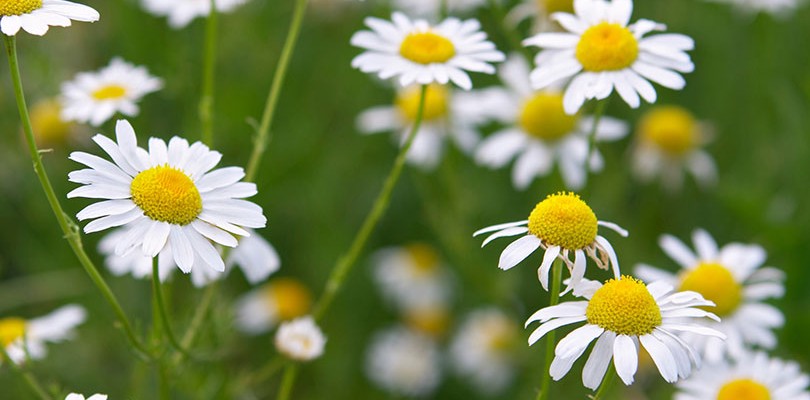
Photo Credit: fotosav / istockphoto.com
4. German Chamomile
Chamomile is well known for its relaxing, comforting qualities. Despite the herb’s delicate flavor, it has a bitter component. Bitter herbs normalize the production of digestive secretions and help to normalize bowel function and movements. Chamomile prevents spasms and relieves discomfort. It provides relief from excess gas. Drink the tea as often as desired. Put the flowers in a cup and add one cup of boiling water. Cover and steep for 20 minutes before straining and drinking the tea.
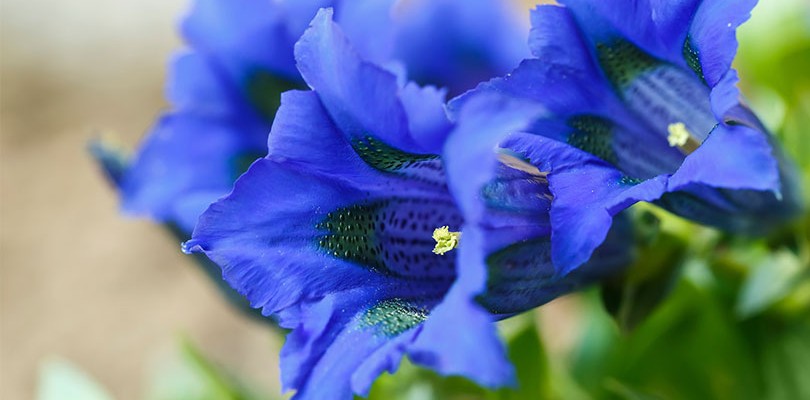
Photo Credit: Artush / istockphoto.com
5. Gentian (Gentiana Lutea)
Herbalists classify gentian as a strong, bitter herb. While the root and bark may be prepared as a decoction, I recommend that it be taken in capsule or tincture form. Gentian is useful for normalizing bowel movements. It is an astringent that tones the gastrointestinal tract and promotes healing by preventing infections and destroying harmful pathogens. It is a beneficial herb to use during a flare-up of symptoms. The herb also relieves gas.
Pregnant women and people with gastric or duodenal ulcers should not take Gentian. 1-3 milliliters of a 1:5 tincture may be taken three times daily.
How to eat safe foods for IBS that will likely improve symptoms as well as understanding FODMAPs and what not to eat.
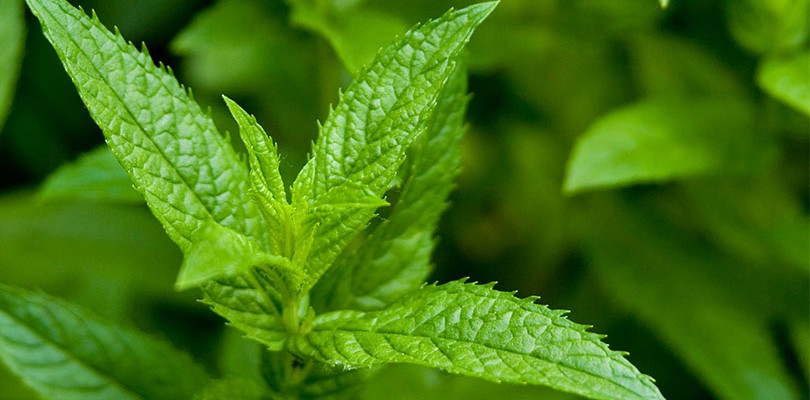
Photo Credit: drug123 / istockphoto.com
6. Peppermint (Mentha Piperita)
Drink peppermint tea as often as desired. Prepare it as an infusion. Peppermint oil capsules are prescribed by conventional and alternative healthcare practitioners for the relief of IBS. Enteric-coated capsules are the most useful form of peppermint when treating IBS. Capsules containing 0.2mls of peppermint oil should be taken between meals, three times daily. Peppermint relieves spasms, pain and gas and prevents diarrhea.
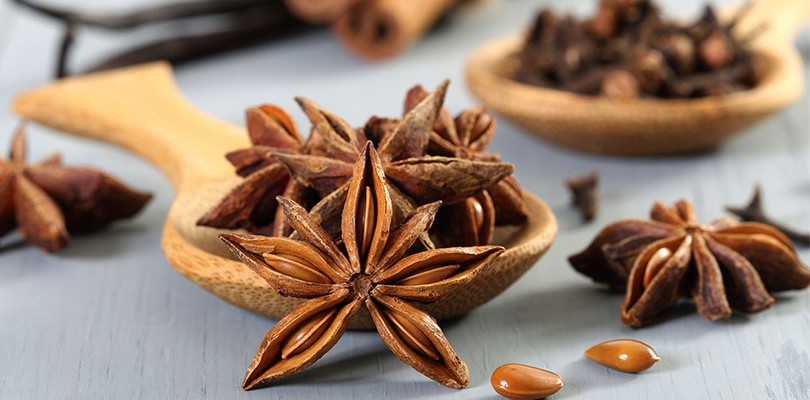
Photo Credit: DENIO RIGACCI / istockphoto.com
7. Anise (Pimpinella Anisum)
This sweet-tasting culinary herb with a mild licorice-like flavor helps to prevent and relieve gas. It is a general digestive aid. The herb is classified as having warming properties and helps prevent the formation of excess mucus. It stimulates glandular function, thereby normalizing the health of the gastrointestinal tract. The herb prevents spasms and infections of the gastrointestinal tract. An infusion may be made from the seeds.
Some people may be allergic to the herb, and people on blood-thinning medications should not take it.
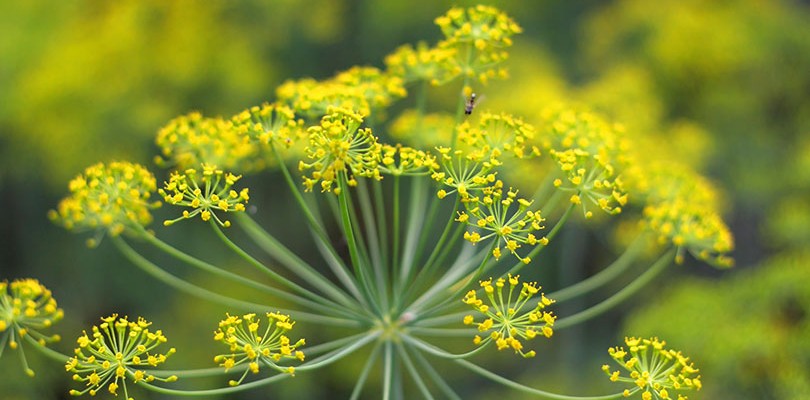
Photo Credit: Sergpet / istockphoto.com
8. Fennel (Foeniculum Vulgare)
Fennel is a pretty garden herb that is superb for relieving colicky pains and gas. It works quickly and reliably. While the entire plant is useful, the most active medicinal parts are the seeds. Make an infusion and drink as desired. If you grow fennel and want quick, simple relief from gas or indigestion, simply nibble on some of the lacelike leaves and you will feel better within minutes. Fennel is well tolerated and does not interfere with the action of medications. It is safe for all ages.

Photo Credit: Elenathewise / istockphoto.com
9. Dandelion (Taraxacum Officinale)
Dandelion root is a versatile bitter herb that aids the entire gastrointestinal tract. It helps enhance the health of the liver, which produces bile essential for the proper functioning of the digestive tract. Dandelion root helps to prevent constipation.
Dandelion may cause allergic reactions in individuals who are allergic to ray flowers such as daisies.
The root may be prepared as a decoction. Make an herbal decoction by placing one teaspoon of root in a pot with one cup of water. Cover and simmer for 20 minutes, strain out the herb, and drink the tea. The tea may be consumed three times each day.
If using a dandelion root tincture, take 3-5mls of a 1:5 tincture three times daily. Be sure that you use dandelion root. The medicinal properties of dandelion leaves are not the same as those provided by the roots. You may want to harvest wild dandelion roots or grow some. They are easy-to-grow wild plants.

Photo Credit: fotomem / istockphoto.com
Safe Use of Herbal Remedies
Herbs are generally well tolerated and do not interfere with conventional treatments for IBS. However, I suggest that you consult with a qualified health care practitioner before using herbs medicinally. This is especially important if you have other medical conditions or are taking pharmaceuticals.
If you choose to gather or grow herbs, be sure that they are grown on healthy soil that has not been treated with chemical fertilizers or pesticides. Never overharvest wild plants.
Herbs work differently than most pharmaceuticals. They must be used consistently for you to achieve optimal benefits. Herbs may take a longer time to work than pharmaceuticals do initially. However, they often correct underlying imbalances when used regularly and provide lasting relief of symptoms.
Read more about nutrition for IBS over at NewLifeOutlook.
IBS back pain might be referred pain from abdominal cramping and gas. Read this article to learn about coping methods to ease the pain.








